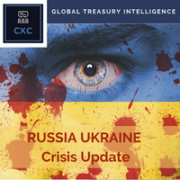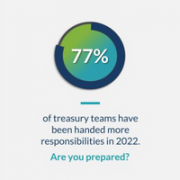Winding Down Russia: Treasury Challenges
23-05-2022 | treasuryXL | ComplexCountries | LinkedIn |
This was our third call on the situation in Russia. It focused on the practical challenges people are facing: nearly all participants are either running down their businesses or continuing on humanitarian grounds for products which are exempted from sanctions, particularly in the healthcare sector. However, as one participant put it, winding down is easier said than done.
This report was compiled by Monie Lindsey. based on a Treasury Peer Call chaired by Damian Glendinning.

Chair’s Overview
This was our third call on the situation in Russia. It focused on the practical challenges people are facing: nearly all participants are either running down their businesses or continuing on humanitarian grounds for products that are exempted from sanctions, particularly in the healthcare sector. However, as one participant put it, winding down is easier said than done.
- Many businesses operate through franchises in foreign countries. Terminating the franchise agreement may not be enough to stop them from continuing the business and using the brand name – some high-profile companies which have stopped operations still have franchisees who are continuing to trade, using the name.
- In some cases, the name remains on the business. This makes it difficult for the brand owner to walk away, as the reputational risk remains.
- People in the healthcare sector feel a need to carry on for humanitarian reasons. For them, there are significant logistical challenges getting new shipments into the country: no flights, very little sea freight, so heavy dependency on road transport, with limited willing suppliers. They are encountering an additional issue: sanctions apply based on customs codes, and some health care products have not been appropriately coded.
- In other sectors, companies continue to sell down their existing inventory – but even this can be complicated, as fresh inputs can be required to make goods saleable.
- Still, other participants have operations that are purely local, and do not require imports. These will typically continue to function, though moves are being made to make them fully independent.
- Despite all the above, most participants continue to be able to pay down intercompany debt, pay dividends and settle outstanding intercompany invoices.
- Cash operations are complicated by the need to segregate payments emanating from sanctioned banks. Again, this seems to work, and customers are usually willing to transfer their payments to non sanctioned banks.
- Many Russian entities have taken steps to disguise their real ownership as a means of evading sanctions: some participants are using a database to identify the true beneficial owners to see whether sanctions apply.
- Most international banks continue to function, but SocGen recently announced it is selling Rosbank. This raises the concern it may be sanctioned in the future.
- Most international banks are refusing to open new accounts, and none is interested in taking deposits. This is a concern for participants who are building up cash balances as they sell down inventory. Raiffeisen seems to be the major exception to this.
- It continues to be possible to convert RUB into hard currency – as long as you are not using a sanctioned bank. Hedging is also possible, but liquidity is limited and deliverable forwards are not available. NDFs seem to work.
- Several participants have had to remove their Russian subsidiaries from their centralised treasury structures and in-house banks. This has resulted in the hiring of new local staff to manage the newly independent operations.
- One participant raised the concern that Russia may be branded as a state sponsor of terrorism. This would complicate matters even further.
Bottom line: despite the length of this summary, there are still further details in the report below. Please read it. The overwhelming feedback from the call was that everyone is trying to comply with the sanctions, and business is either being scaled back, or completely localised. People have stopped looking for ways round sanctions – but compliance is complicated.
The full report on Winding Down Russia: Treasury Challenges is available to subscribers. Please get in touch for details. Enquire












